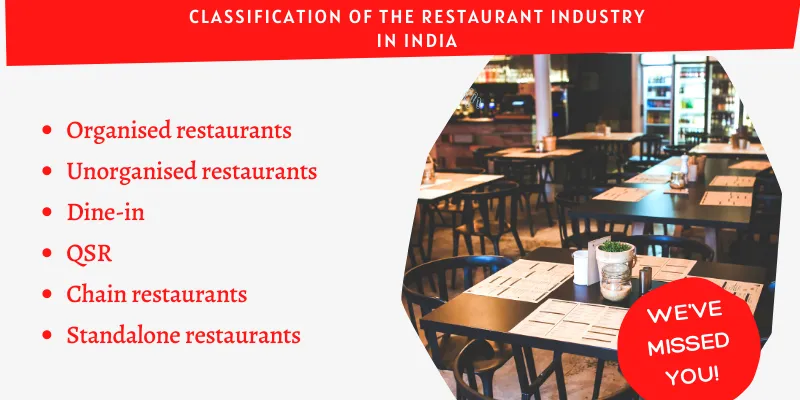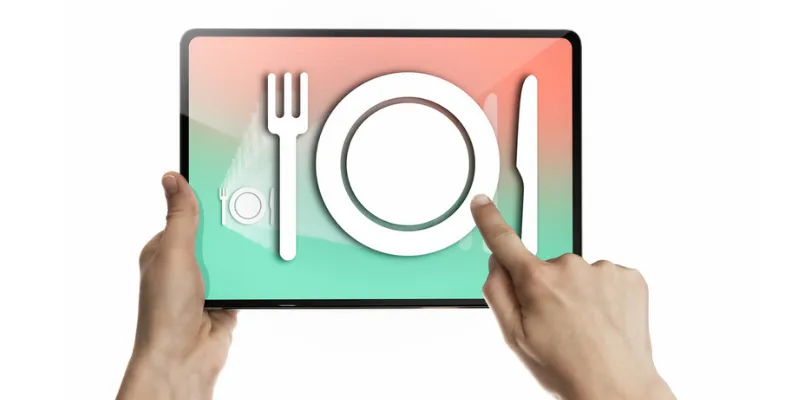[2022 Outlook] From contactless menus to automation, 5 trends shaping the future of restaurant industry
While many restaurants spent 2021 trying to get back on their feet, the second wave brought in more challenges. But on the brighter side, they found innovative ways to improve businesses.
The restaurant industry across the world was one of the hardest hit during the pandemic. While restaurants were asked to shut shop overnight in India after the government announced lockdown during the first wave of the pandemic, the second wave impacted an already fragile restaurant industry and even forced the shutting down of many restaurants permanently.
According to a report by the National Restaurant Association of India (NRAI), the restaurant industry reported a 53 percent decline in business in FY21 with the market size shrinking to Rs 2 trillion from ₹4.2 trillion in FY20 due to the pandemic.
While the pandemic threatened the survival of independent restaurants as a category, a few of them managed to pivot by adapting to the new normal and ventured into QSRs and virtual restaurants. Overall, the pandemic gave many avenues to entrepreneurs in the restaurant business for research and innovation.
For example, an old café owner in Delhi’s Hauz Khas, who had to shut shop during the pandemic, has now rented out the space to other restaurants. He has also partnered with them to set up cloud kitchens and is making a business out of it.
While the industry scenario has completely changed, restaurants are trying to innovate and establish a successful business compared to their earlier ventures.
As the industry emerges from the many challenges and uncertainties caused by the pandemic, SMBStory looks at five trends for the restaurant industry in 2022.

Drive-through restaurants and QSRs
Shyam Thakur, Founder of , a QSR momo chain and RYU bar, explains that QSR is the future for any F&B brand as it involves less cost and space.
“Amid the pandemic, we limited our dine-in experience and increased the QSR operations, which worked really well for us. A lot of cost and overhead expenses are involved to run a restaurant, and many restaurants that were dine-in only couldn’t survive and were shut down as they were not able to bear the costs,” he says.
The drive-through concept is another growing trend in India. Burger giant McDonalds, among others, has pioneered in bringing this trend to India and will see an increased focus in the coming years.
Contactless menus
Maintaining social distance at the restaurant became one of the foremost protocols during COVID-19. To ensure all safety measures are in place, restaurants adopted contactless menus making customers comfortable and ordering seamless.
Restaurant owners incorporated various software that automated their operational processes and allowed the owners and staff to focus on other important areas like food and customer experience while significantly increasing operational efficiency.
In 2022, this trend is going to increase. According to Square's Future of Restaurants 2021 report, 88 percent of restaurants will swap physical menus for digital ones.
QR codes and mobile apps have also been a solution, allowing customers to view menus on their smartphones and, in some cases, order as well. The study also revealed that contactless payment will increase in the coming years.
Less dependency on physical kitchens, automation
For many restaurants, cloud kitchens became a means to survive during the pandemic. But now, it has become a new vertical that almost adds 10 percent to the top-line revenue, safeguarding against any losses incurred from the physical restaurants, says Dawn Thomas, Co-founder, , while explaining the rise in the cloud kitchen business.
Cloud kitchen saves the cost for restaurant owners who can operate multiple brands from a single kitchen by using the same kitchen infrastructure and resources. The cloud kitchen business model allows restaurateurs to experiment with multiple concepts without much investment.
Thomas adds that the company is planning to ramp up its cloud kitchen business from the existing physical kitchens and has taken first steps outside Bengaluru as this is in line with the company’s goal to become a pan-India hospitality brand.
Talking about automating cloud kitchens or physical kitchens to reduce manual dependency, Rajeev Kumar, CEO of Carnival Foods, says, they couldn't expand their kitchen size as real estate was prohibitive amid COVID-19.
“We couldn't hire expensive and exclusive manpower at each outlet as those would distort the economics and create friction. So, we decided to fundamentally change the way complex Indian cuisines are cooked at the outlet level and automate cooking processes,” he adds.
Eshwar K Vikas, CEO of , says, commercial kitchens always needed automation, but people were not able to realise its long-term benefits.
“It’s new-age food businesses like Carnival Foods that believed in the power of automation and understood that it’s not just about reducing turnaround time and maintaining food consistency, but it also helps in reducing the operational cost.”
Today, especially amid COVID-19, Mukunda Foods has automated around 80 percent of the global cuisine and most of the major food brands are using automation in their kitchens.

Offer an experience of comfort
Sharath Rice, Co-founder, VRO Hospitality, says, customers now have more expectations and are demanding a better experience at restaurants.
“We are still witnessing new shifts in consumer behaviour every day and are working hard to wade through the negative impact of Covid on the business. But the fundamentals of the business have largely remained unchanged.”
He adds that today the consumer is willing to pay for an experience. While conditions have been relaxed, the industry must ensure that the patrons relax and enjoy in a secure and hygienic environment. The challenge remains in delivering a superlative experience keeping all the factors in mind, he adds.
Innovative retail concept
Today, technology is pivotal for any industry to flourish. Even restaurants are going for tech adoption to bring innovative experiences to their customers.
Abhinav Mathur, Founder, Something’s Brewing, a small cafe serving speciality coffee in Bengaluru, says, customers now want to experience something new when they step into a restaurant.
For this, Abhinav has developed an IoT-based contactless coffee vending technology, which allows customers to dispense coffee through an app and allows them to choose the beverage and pay online as well.
“There are many more automation projects which ease the operations or add to the customer experience, including an automatic milk dispenser (to save milk wastage in cafes) and Ripple Maker, which can print an image on the Latte you have at the café,” says Abhinav.
He says, the cafe is seeing more visitors and that he is planning to expand to Mumbai, Delhi, and Hyderabad soon.
Edited by Megha Reddy


![[2022 Outlook] From contactless menus to automation, 5 trends shaping the future of restaurant industry](https://images.yourstory.com/cs/21/604090802d6d11e9aa979329348d4c3e/1-1640549713214.png?mode=crop&crop=faces&ar=2%3A1&format=auto&w=1920&q=75)
![[Year in Review 2021] Here are the trends that will reshape offline retail in 2022 and beyond](https://images.yourstory.com/cs/21/0a385fc03e6011e999df3d1594bbde2c/SMB-32-1640108346622.png?fm=png&auto=format&h=100&w=100&crop=entropy&fit=crop)
![[Year in Review 2021] 5 trends that dominated the MSME sector](https://images.yourstory.com/cs/21/e1da3a20368f11ea8ceed32dbcb77ccc/MSME-sector12-1639978639558.png?fm=png&auto=format&h=100&w=100&crop=entropy&fit=crop)
![[Startup Bharat] Jaipur-based SaaS platform FUDR is enabling restaurants and F&B brands ride the digital wave](https://images.yourstory.com/cs/2/e641e900925711e9926177f451727da9/FUDR-1633437391184.png?fm=png&auto=format&h=100&w=100&crop=entropy&fit=crop)




